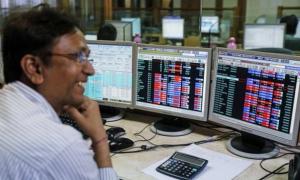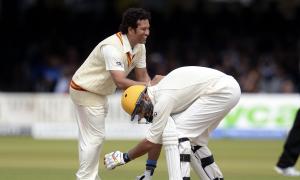 You can use gold as a financial instrument to diversify your portfolio into hedging against uncertainties in the market, but for ambitious returns, you must explore opportunities in other asset classes such as equities, debts and real estate, says Adhil Shetty, CEO, BankBazaar.com.
You can use gold as a financial instrument to diversify your portfolio into hedging against uncertainties in the market, but for ambitious returns, you must explore opportunities in other asset classes such as equities, debts and real estate, says Adhil Shetty, CEO, BankBazaar.com.
Gold has proven to be a safe haven to many investors over the centuries. It is believed to be the asset class that can perform well in all adversaries such as war or global market slowdown.
In India especially, gold is linked to investor sentiment due to its large use in jewellery. According to media reports, the total gold holding at present in India is approximately 22,000 tonnes and it has been growing at a steady rate year-on-year.

Why people prefer gold for investment
The yellow metal has always been a favourite due to its resilient nature and performance during odd times. Gold is a noble metal, meaning it does not corrode or oxidise like most other metals. This gives gold a long life, and therefore makes it useful as currency and jewellery. And since it is in short supply, there’s always demand for gold.
When fear prevails in the investment market, people start moving their funds to gold as it acts as a hedge against inflation. The value of gold, being driven by the global demand and supply dynamics, allows investors to hedge investment against inflation. Investment in gold over a period of time can fetch good returns as it beats inflation in the long run.
Another reason for investment in gold is its high liquidity. People use gold to stack cash, as this metal can be bought and sold anytime in the market. However, post demonetisation, the stacking of cash in gold is likely to reduce, with the Income Tax Department tightening its noose around jewellers dealing in cash to eradicate laundering of money. The recent fall in demand is a clear indication of that.
Gold is malleable and easy to shape. And so for centuries, civilisations have been using it to form jewellery and artefacts. Buying gold in the form of jewellery has been an age-old way of investment and it is still preferred keeping in mind its use in Indian marriages.

People accumulate gold through their life for children’s marriage. In India, people look upon gold as the last resort in times of financial crisis due to its virtue of liquidity, so it’s gifted in marriages in the form of jewellery to ensure financial security. Durability and consistency in returns also attract buyers to hold gold over a long time.
It’s also the only long-term asset class, which is inversely proportional to other investment asset classes such as stocks and equities. Investors include gold in their portfolio to reduce volatility and earn good returns when other assets do not perform well.
Returns aspect of gold investment
Gold has always notably outpaced the inflation level in the past. Between 2006 and 2011, it had given average returns of 29 per cent per annum, whereas in the last five years, the returns remained subdued. Let’s take a look at the performance of gold in the last 10 years in the table below:
Gold Return in last 10 years
|
Year |
Gold Price/ 10 Gram |
|
2006 |
8400 |
|
2011 |
26400 |
|
2016 |
28623 |
|
|
|
|
10 Year Absolute Return |
241% |
|
5 Year Absolute Return |
8.50% |
*Data taken from Bankbazaar.com
If the investment is done over a shorter duration, the return is either volatile or subdued depending on global market factors.
While investing in gold, you must keep in mind the impact tax can have on the returns. For short-term capital gain, the tax is levied on the respective slab rate, whereas for long-term capital gain, the tax is 20.6 per cent with indexation. Therefore, gold investment should be considered for long term for better tax efficiency.
Is it always safe to invest in gold?
No investment asset is entirely safe and protected from risk. Gold is considered to be relatively secure because it supersedes fear and uncertainty, but once the market bounces back, it pairs gain just like any other asset class.
You can use gold as a financial instrument to diversify your portfolio into hedging against uncertainties in the market, but for ambitious returns, you must explore opportunities in other asset classes such as equities, debts and real estate.
With the announcement of demonetisation move, people chaotically parked their cash in gold, expecting the yellow metal to hedge against the fall in value of other asset classes. The value of gold eventually went down by 8 per cent approximately. Once the impact of demonetisation allays, other assets are expected to regain value quicker than gold.
Alternatives to physical gold
Usually people opt for physical gold in the form of jewellery, coins and bars. The buying cost of any jewellery includes the making charges but when you try to sell it to a jeweller, he would deduct the making charge and pay you less than the market price.

There are several alternatives to physical gold which are easier to handle and safer to invest in. Investment in gold through mutual funds, Exchange Traded Funds (ETFs) and Sovereign Gold Bonds (SGB) are some such options. SGB allows interest income along with the capital appreciation.
Factors that impact gold prices
There are several global and domestic economic factors that impact the price of gold. Gold price is negatively correlated to the dollar index, so, people often switch to gold for better returns when dollar drops.
Gold is negatively correlated with the US fed rate. Demand from emerging nations such as India and China also impact gold prices significantly, as they are the biggest consumers of gold.
India is one of the major importers of gold in the world and depreciation or appreciation of the domestic currency with respect to dollar determines the value of gold in the domestic market. Tax policies of a country largely impact the import and export of gold, thus influencing the gold prices within a domestic market.
Adhil Shetty is CEO, BankBazaar.com.
BankBazaar.com is a marketplace where you can compare and apply online for loans to meet all your personal loan, home loan, car loan and credit card needs from India's leading banks and NBFCs.











More from rediff